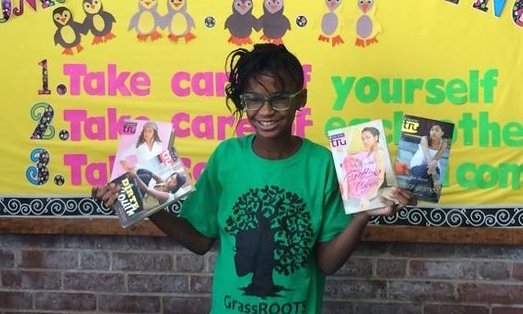The bravery of reading
By Emily Pierce, Contributing Writer
The most wonderful thing about literature is its ability to elicit emotions from readers. This facet of its nature is also absolutely terrifying. After all, why should words arranged on a page have any effect on us? That big, scary “real world” everyone always talks about should be more than enough to satisfy us.
The difference lies in that we choose to read, for a variety of reasons. would argue that all literary pursuits across history, from epics to novellas to the Sunday morning comics, are created with learning and catharsis in mind. Those end goals do not become artificial merely because a human intends to generate them in readers through their work. Rather, there is almost something more tangibly real about seeking truth and comfort outside of the life one leads. Both the creators and the seekers of literature, then, ought to be considered remarkably brave.
As creatures who base perception in aspects of ego, readers naturally seek reflections of themselves in any particular text. I look back on binge-reading the saddest love poetry I could find after the realization that my “flirtationship” was a bust, finding kinship in the historically brokenhearted. Granted, I think Edna St. Vincent Millay would probably roll her eyes at my borderline melodrama. But it was what I needed at the time: tangible proof that I was not alone.
So, too, do many others seek themselves through the words of another. There is comfort to be found in closure, as poems and books will always end while our only guarantee of finality is in death. Sure as the sun will rise tomorrow morning, readers will project (whether consciously or not!) themselves onto their reading material, searching for answers.
Isn’t it also intriguing to find similarity even through differences? Frankly, I would find it very boring to read only about people who look or think as I do. In seeking emotional resonance through reading, we can also be transported into different places, times and mindsets. Reading is more than just a cheap travel substitute; it is an all-too-important tool for the expansion of minds.
Luckily, the initiative for promoting self-discovery and satisfaction through literature frequently starts when readers are very young. Indeed, children are probably the bravest readers of all, having devoted part of their short time on Earth to discovery for discovery’s sake. The self-preservation provided through reading and writing allows us a better picture of our youth. Even as we cross the bridge between childhood and adulthood, never to return, we can still look back and wave at who we used to be; this act becomes easier and easier as we read. The demand for diversity in children’s literature becomes louder and louder, with good reason. Marley Dias, an eleven-year-old from New Jersey, told her mother that “[she] was sick of reading about white boys and dogs” (Jezebel) as the only protagonists of books marketed towards her age group. The young activist started a movement called #1000BlackGirlBooks and travels throughout America to discuss the importance of emphasizing diversity in education. Certainly, Dias is one of the bravest readers I have heard of, making it her mission to give all children an opportunity to connect with the literature they are offered.

